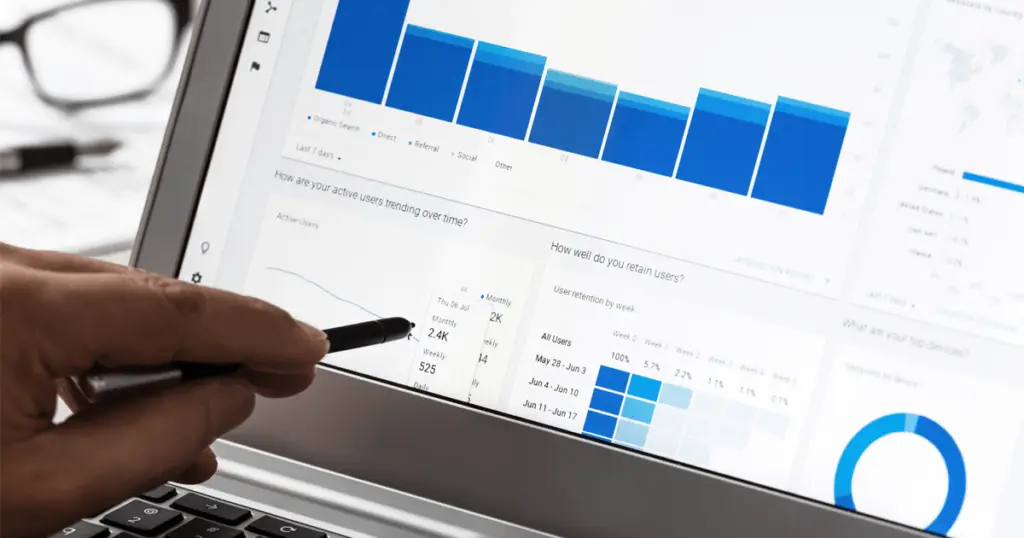Whether you’re a blogger, an online business owner, or just someone who spends time browsing the internet: understanding keywords is crucial for search engine optimisation (SEO). What exactly are keywords, and how do they work?
What are keywords?
Keywords are words or phrases that people use to search for information, products, or services on search engines like Google, Bing, or Yahoo. When you type something into that search bar, like “best pizza in Hawke’s Bay” or “where to go fishing in Gisborne,” those are your keywords.
Imagine keywords as the magic spells that unlock the treasure trove of information on the internet. They are the words that connect you to the web pages, blog posts, videos, and other content that is most relevant to what you’re looking for.
How do keywords work?
Keywords serve as the bridge between users and the content that search engines provide. When you input a keyword, the search engine goes through its vast database of websites and content to find the most relevant matches.
Here are the different steps that the search engine goes through to connect your search with the right content.
Crawling
Search engines send out bots called “crawlers” or “spiders” to scan the web continuously. These bots visit websites, read their content, and index it in their massive databases. This indexing process includes identifying and cataloguing keywords.
Indexing
Search engines create an index of the keywords and their associated web pages. This index allows them to quickly retrieve relevant results when users perform searches.
Ranking
When you enter a keyword into a search engine, it uses complex algorithms to determine which web pages are the most relevant to your query. These algorithms consider a multitude of factors, including the quality of the content, the authority of the website, and how well the content matches the keyword.
Displaying Results
Finally, the search engine displays a list of search results ranked in order of relevance. This is what you see on the search engine results page (SERP). The pages at the top of the list are considered the most relevant to your query.
Why are keywords important to your business?
Keywords are the lifeblood of the internet. They are what make it possible for you to find information, products, and services quickly and easily. But keywords are not just important for users; they are also crucial for website owners, content creators, and online businesses. Here’s why:
Creating visibility with keywords
If you have a website or run an online business, you want people to find you. Keywords are your ticket to visibility on the internet. By optimising your content with the right keywords, you increase your chances of showing up in search results when people are looking for what you offer.
Keywords can increase the traffic to your website
Appearing in search results means more organic traffic to your website. When your content is relevant to users’ queries, they are more likely to click on your link and explore your website.
Use keywords to demonstrate the relevance of your business
Keywords help ensure that your content is relevant to your target audience. If you’re a pet store owner, you want your website to appear in searches related to pet supplies, not car parts. Keywords help you stay on-topic.
The right keywords can help you stand out from the competition
Knowing which keywords your competitors are targeting can be a game-changer. By doing keyword research, you can identify opportunities to outrank them and capture a larger share of the online market.
What are the different types of keywords?
Keywords come in two main forms: short-tail and long-tail.
What are short-tail keywords?
Short-tail keywords are typically one or two-word keywords that are broad in scope. Examples include “pizza” or “fishing charter.” Short-tail keywords have high search volume but are highly competitive.
What are long-tail keywords?
Long-tail keywords are longer, more specific phrases. Examples include “gluten-free pizza in Hawke’s Bay” or “how to charter a fishing boat in Gisborne.” Long-tail keywords have lower search volume but are less competitive. They often lead to more targeted traffic and better conversion rates.
Using a mix of both short-tail and long-tail keywords in your content strategy can be effective. Short-tail keywords can bring in a broad audience, while long-tail keywords can attract users who are closer to making a decision or purchase.
Are your customers using voice search to find your product or service online? Find out more about optimising your website for voice search in our blog Is your website ready for voice search?
The importance of keyword research
Keyword research is the process of finding the right keywords to focus on in your content. It’s like playing detective on the internet, trying to uncover what your audience is searching for. Here are some steps you can take to find keywords for your website.
1. Brainstorm keywords based on your understanding of your customers
Begin by brainstorming a list of potential keywords that are relevant to your topic or business. Put yourself in your audience’s shoes and think about what they might search for.
2. Use Keyword Tools
There are numerous keyword research tools available, both free and paid, that can help you identify popular keywords and their search volume. Google’s Keyword Planner, SEMrush, and Ahrefs are some popular options.
3. Take a close look at your competition
Look at the websites and content that currently rank for your target keywords. Review their content quality and authority. Are there gaps you can fill with better content?
4. Consider ‘User Intent’
Think about not just what your customers are searching for, but also why they are searching. This is the intent behind the keyword. Is the user looking for information, wanting to make a purchase, or seeking a specific service? Tailor your content to match that intent.
5. Remember your Long-Tail Keywords
Don’t underestimate the power of long-tail keywords. They may have lower search volume, but they often convert better because they are more specific.
How to optimise your website content with keywords
Once you’ve identified your target keywords, it’s time to optimise your content. This is the process where you weave the short- and long-tail keywords that your customers are using across your website.
Here’s a quick look at the different ways you can optimise your website content:
Title Tags: Include your target keyword in the title tag of your webpage or blog post. This is one of the most crucial on-page SEO elements.
Meta Descriptions: Write a compelling meta description that includes your keyword. This is the snippet that appears in search results, so make it enticing.
Content: Naturally incorporate your keywords throughout your content. Don’t overdo it; keyword stuffing can harm your rankings. Aim for a natural flow.
Headings and Subheading: Use your keywords in headings and subheadings to structure your content and make it more readable.
URLs: If possible, include your keyword in the URL of your webpage or blog post.
Images: Optimise your images with alt text that includes your keyword. This helps with image search rankings.
Internal Links: Use your keywords in anchor text when linking to other pages within your website.
Invest in High-Quality Content: Ultimately, the best way to rank well for keywords is to create high-quality, informative, and engaging content that meets users’ needs.
Keywords are the words and phrases that connect users to the content they are searching for on the internet. Whether you’re a website owner, blogger, or just someone looking for answers, understanding how keywords work can enhance your online experience. Keyword research and optimisation are ongoing processes. As search trends evolve and user behaviour changes, so should your keyword strategy.
Looking for help with keyword research, Google Ads, Search Engine Optimisation or creating content for your website? Caddie digital are experts at getting websites found online. We build and develop websites that connect businesses with their customers: connect with us today to find out how we can help you.






